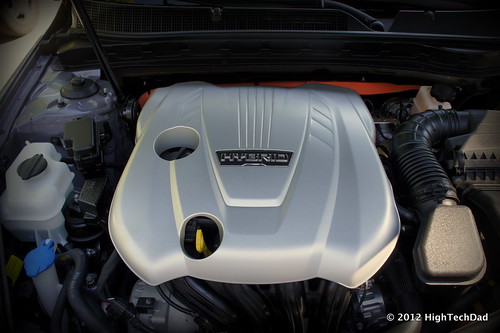Many people are wondering if car insurance is cheaper for hybrids. Insurance companies usually consider those who buy a hybrid vehicle to be financially responsible, and they also take a close look at the model itself.
Hybrid are some of the hottest selling vehicles on the roads. Hybrid vehicle sales continue to increase, with over 20,000 sold per month in 2012. On average, these cars cost about 20 percent more than a compatible model that operates exclusively on an internal combustion engine. The main reason for the popularity of hybrid automobiles is their low fuel costs and energy efficiency.
The Make Up of a Hybrid Driver
Since consumers shell out more money to obtain a new hybrid, insurance providers may assume the person to be a lower financial risk. Because they can afford a higher priced vehicle, car buyers who have a good credit rating and have a proven track record of paying bills on time are sometimes rewarded with lower monthly insurance premiums.
Insurance companies may also consider the fact that the person is taking responsibility for lowering greenhouse gas emissions. It may be that insurance companies consider a married person with a history of financial stability and who operates a hybrid vehicle to be more conscious of personal responsibilities.
Statistics gathered over the past two years indicate a slight favoritism shown to individuals who purchase a brand new hybrid model. In addition to likely being a more responsible and safe driver, hybrid owners, with their models’ higher price, are also more likely to live in safer neighborhoods and have garages for their vehicles.
Operational And Maintenance Costs
Hybrid vehicles are touted by their manufacturers to be less costly to operate and maintain. The battery pack is under a long-term warranty, there are fewer moving parts, and the price of electricity for charging the system is much lower than the cost of gasoline or diesel.
One insurance factor that works against hybrids is their higher initial market value. Since the car costs more to begin with, the cost of collision and comprehensive insurance may actually be higher. The IMT Group recently conducted a study indicating that hybrid vehicles average nearly $200 more per insurance claim.
Another problem is the cost factor when replacement parts or engine servicing is required. There are far fewer mechanics and auto shops that are prepared to offer good prices on maintenance because the parts for these cars are harder to come by. The aftermarket parts industry still has some catching up to do.
Reduced Noise Is A Problem
From an insurance perspective, one of the good things about internal combustion engines is the noise they produce. Pedestrians and bicyclists can hear these engines from a distance and can usually tell when a car is fast approaching. This is a major concern with hybrid and electric models.
At speeds below 35 mph, hybrids are much harder to hear. The car travels at these speeds on arterials and residential streets that may be heavily trafficked by pedestrians. Insurance companies have noticed that nearly twice the average number of claims are filed for hybrid cars that become involved in a slow-speed accident, particularly accidents that occur while backing the vehicle from a driveway or when the car is being driven in an alley.
Hybrid auto makers are starting to introduce noise generation into their models so the models aren’t so whisper quiet and can be more easily heard by pedestrians and bicyclists.
Insurance Costs
The latest results from the IIHS and other motor vehicle performance authorities include not one single hybrid model in the top 10 list in terms of average insurance cost. Several vehicles on the list are pickup trucks and crossovers, all of which are powered by traditional internal combustion engines.
More than anything else, insurance rates are determined by the safety statistics gathered on the vehicle and the driving record of the policyholder. Hybrid cars tend to cost less to insure only if the vehicle owner has a stellar driving record, files few or no claims, and has an outstanding credit score.
This article was written by John Reynolds on behalf of Kanetix, a website dedicated to helping drivers lower their insurance costs.









Still. the insurance rates depend on the driving record of the hybrid vehicle owner. Insurance companies can not always accept application for car insurance especially if a applicant has an awful driving record.